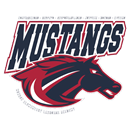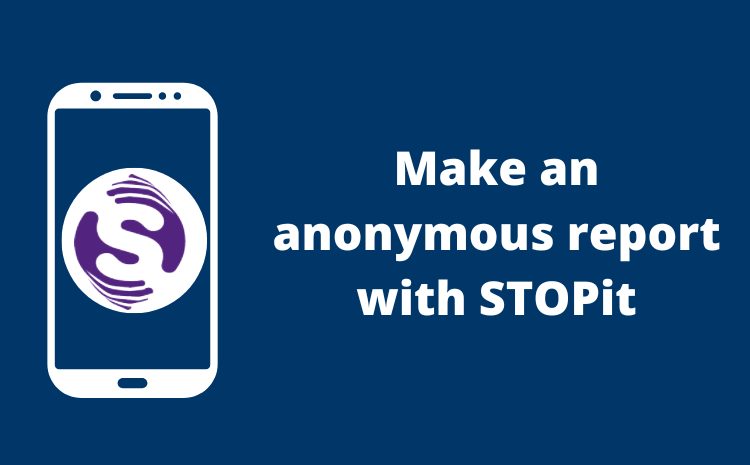Dual Language Immersion Parent Resources
Spanish-Language Web Resources for Children’s Literacy
Kindergarten Readiness
Get Ready to Read! ~ Screening Tool/Prepárate a leer!
Provides parents and educators with a snapshot of where a child is with their early literacy skills the year before kindergarten. Some adults find it helpful to screen their bilingual child with both the English and Spanish versions.
In English: www.getreadytoread.org/content/view/76/306/
A Guide to Reading Tips for Parents
A power point presentation to help parents, caregivers and teachers understand the importance of reading and the role of parental involvement in helping children to read.
In English: En Español: En Español:
www.ed.gov/parents/read/resources/readingtips/edlite-index.html www.ed.gov/espanol/readingtips/edlite-index.html www.getreadytoread.org/screening/grtr_directions_spanish.php
Put Reading First: Helping Your Child Learn To Read: A Parent Guide
La Lectura es lo Primero: Cómo ayudar a su hijo a aprender a leer: Una Guia Para Padres De Familia: Del Preescolar Al Tercer Grado
This Spanish brochure tells what to expect from a school’s reading program based on evidence from research (preschool through grade 3). Also suggests ways parents can reinforce reading instruction at home with everyday activities and interactions.
En Español: www.nifl.gov/partnershipforreading/publications/pdf/PRF_espan_.pdf
Ready At Five
Resources include monthly “ParentTips!” (Includes permission to distribute in your school or organizational newsletters and flyers.) and over 35 “hands-on” activities in the School Readiness “Activity Box” to help make learning fun.
In English: www.readyatfive.org/resources/resources.html En Español: www.readyatfive.org/spanish/spanish.html
ToolKit for Hispanic Families: Resources to Help Students Succeed in School
Literacy resources include: You and Your Preschool Child and Tips for Helping Children Learn to Read. In English: www.ed.gov/parents/academic/involve/2006toolkit/index.html
En Español: www.ed.gov/espanol/parents/academic/involve/2006toolkit/index.html
Additional Resources
Colorín Colorado (Colorado Department of Education)
A bilingual website that provides information, activities, and advice for educators, and Spanish-speaking families of English language learners (ELLs).
In English: www.ColorinColorado.org
En Español: www.colorincolorado.org/index.php?langswitch=es
Every Child Ready to Read @ your library®/Cada niño listo para leer @ su biblioteca
A series of parent and caregiver workshops to provide public libraries with tools to help prepare parents for their role as their child’s first teacher. This website includes many of the resources and scripts translated into Spanish.
Bilingual: www.ala.org/ala/alsc/ECRR/ecrrinpractice/translations/sptranslations.htm
Bilingual Families Website
This web site provides support and resources for families where one or both parents are speaking a foreign language (not their native language) to their children in an effort to raise them bilingually. The site features answers to frequently asked questions about raising children bilingually, a list of references and a listserv.
http://humanities.byu.edu/bilingua/
Multilingual Children’s Association Website
The Multilingual Children’s Association focuses on the day-to-day joys and challenges of raising bilingual and multilingual children. This user-friendly website includes up-to-date information and useful resources for families seeking to raise multilingual children.
http://www.multilingualchildren.org/index.html
International Reading Association
Brochures are available to download to help parents as they take on their critical role as their children’s first and most important teachers. Titles include: Get Ready to Read! Tips for Parents of Young Children, Library Safari: Tips for Parents of Young Readers and Explorers, What Is Family Literacy? Getting Involved in Your Child’s Literacy Learning.
In English and En Español: www.reading.org/resources/tools/parent.html
Lee y Seras/Read and You Will Be
Emphasizes learning, culture and family. Demonstrates how everyday at-home activities such as singing, cooking and storytelling help young people develop early language skills.
In English and En Español: www.leeyseras.net
PBS: Reading and Language/La lectura y el lenguaje
Learn how children become readers and writers and how to help them develop by talking, reading, and writing together every day. Baby through 3rd grade.
In English: www.pbs.org/parents/readinglanguage/index.html
En Español: www.pbs.org/parents/readinglanguage/spanish/index.html
White House Initiative on Educational Excellence for Hispanic Americans
The early childhood section provides information on the various stages of cognitive development from infancy to five years of age.
In English: www.yesican.gov/earlychildhood/index.html
En Español: www.yosipuedo.gov/earlychildhood/index.html
ZERO TO THREE
A variety of materials and handouts, a bit difficult to use as you have to search by “Spanish.” Start with this page and scroll down to locate Everyday Ways to Support Your Baby or Toddler’s Early Learning and Songs, Rhymes, and Fingerplays in English and Spanish
En Español: www.zerotothree.org/site/PageServer?pagename=key_language
Reading Help
Helping Your Child Become a Reader (Activities for children birth through age 6)/Cómo ayudar a su hijo a ser un buen lector: Con actividades para los niños desde el nacimiento hasta los 6 años.
Includes information about why and how to use language skills (talking and listening, reading, and writing) to help young children grow into readers. Provides everyday activities to encourage love of reading.
In English: www.ed.gov/parents/academic/help/reader/index.html
En Español: www.ed.gov/espanol/parents/academic/lector/part_pg7.html?exp=0
Reading Rockets Family Guide
Bilingual guide includes tips for helping children get the most out of reading, pointers on working with schools and teachers, ideas for using the public library, and more.
Bilingual: www.readingrockets.org/?module=uploads&func=download&fileId=67
Reading Tips for Parents - Colorado State Library
Tips on how to read to children, how to set an atmosphere for reading activities and age appropriate ideas from birth to 6 years of age.
In English/En Español: www.cde.state.co.us/cdelib/slreadtips.htm
Reading Tips for Parents/Consejos prácticos para los padres sobre la lectura – U.S. Dept of Education Tips to help your child get ready to read and ready to learn. This publication is in the public domain. Authorization to reproduce it in whole or in part is granted.
In English: www.ed.gov/parents/read/resources/readingtips/index.html
En Español: www.ed.gov/espanol/parents/read/resources/sobrelecture/index.html
READY*SET*READ Early Childhood Learning Kit (archived)
The READY*SET*READ Activity Guides for Families and Caregivers provide ideas to help young children learn about language with age-appropriate activities.
In English and En Español: www.ed.gov/inits/americareads/RSRkit.html
RIF: Helping Your Children Become Readers
Ten ways to interest children in books and help them learn skills that will lead to reading.
In English: www.rif.org/assets/Documents/parents/BecomingReaders.pdf
En Español: www.rif.org/assets/Documents/parents/BecomingReaders_sp.pdf
RIF: Monthly Family Activity Calendar
Provides a new reading and writing activity suggestion for every day of each month. For use with children of all ages.
SOL – Spanish in Our Libraries: Fun Reads
Even the littlest of kids ought to be encouraged to have fun with books.
In English and En Español: www.sol-plus.net/plus/outreach/ratonbabies.htm
Fun Sites for Kids
Engaging Every Student
Support your Dual Language Immersion student through this website, which contains a collection of online resources – interactive e-books, games, videos, and other Spanish language resources can help build proficiency incredibly fast…painlessly and joyfully.
http://www.engagingeverystudent.com/dual-immersion-spanish-resources/
Best Spanish Websites/Games and Fun Sites
Created for teachers and students, easy for parents, too. Page also has links to help for Spanish language studies, as well as links for adults.
In English and En Español : www.uni.edu/becker/Spanish3.html
The International Children’s Digital Library (ICDL)
Based on the principle that families deserve to have access to the books of their culture regardless of where they live, this website is a digital library of more than 10,000 international children’s books in at least 100 languages.
In English/contents En Español www.icdlbooks.org
In English and En Español: www.rif.org/parents/resources/monthly.mspx
The Internet Picture Dictionary
A free, interactive, online multilingual picture dictionary designed for ESL students and beginning English, French, German, Spanish and Italian language learners.
In English/contents En Español www.pdictionary.com
Leamos en Familia ~ Reading is Fundamental
This site is designed to help Latino families read, sing and share stories together.
In English: www.rif.org/leer/default_english_flash.mspx
En Español: www.rif.org/leer/index_flash.mspx
LiteracyCenter.Net Early
Early literacy games and activities in English, Spanish, German and French.
In English: www.literacycenter.net/index.htm
En Español: www.literacycenter.net/lessonview_es.htm
MisCositas
Includes virtual storybooks from Argentina, Mexico and Colombia.
En Español: www.miscositas.com
StoryPlace: La Biblioteca Digital
Online stories and activities in Spanish and English for preschoolers through elementary.
In English: www.storyplace.org/storyplace.asp
En Español: https://www.storyplace.org/es
WhiteHouseInitiative,EducationalExcellenceforHispanicAmericans: KidsZone
The kids’ zones mascot is Pablo el Aguila (Pablo the Eagle). The site features an introduction to Pablo (in Spanish), Fairytales (Spanish), letters to the President from kids and a link to the White House kids section (English).
En Español: www.yosipuedo.gov/kidszone/kidszone3.html
Washington Learning Systems: Activities for Caregivers and Young Children in English and Spanish
Early literacy activities for adults and preschool children that encourage early literacy. The materials specifically address three key skills of 1) language development 2) phonological awareness and 3) general print awareness. The activities are also appropriate for children with disabilities.
In English/contents En Español www.walearning.com/Parent.html


